31 Poems About Summer to Read this July: Classic and Classy
Hello! Summer’s gonna be here soon, and heaven knows I’m sick of winter (partly because I caught cold some, four times last season).
To welcome this amazing, uplifting, hopeful-looking summer of 2025 I’ve compiled this post of 31 poems about summer that celebrate the beautiful, lush early mornings, windy evenings and chilly drinks of this dear season.
Read one every day if you like!
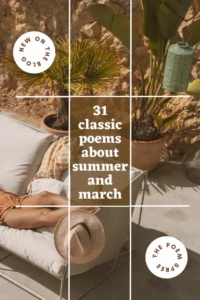
31 Poems About Summer
Day 1: The Fly, by William Blake
Little fly,
Thy summer’s play
My thoughtless hand
Has brushed away.
Am not I
A fly like thee?
Or art not thou
A man like me?
For I dance
And drink and sing,
Till some blind hand
Shall brush my wing.
If thought is life
And strength and breath,
And the want
Of thought is death,
Then am I
A happy fly,
If I live,
Or if I die.
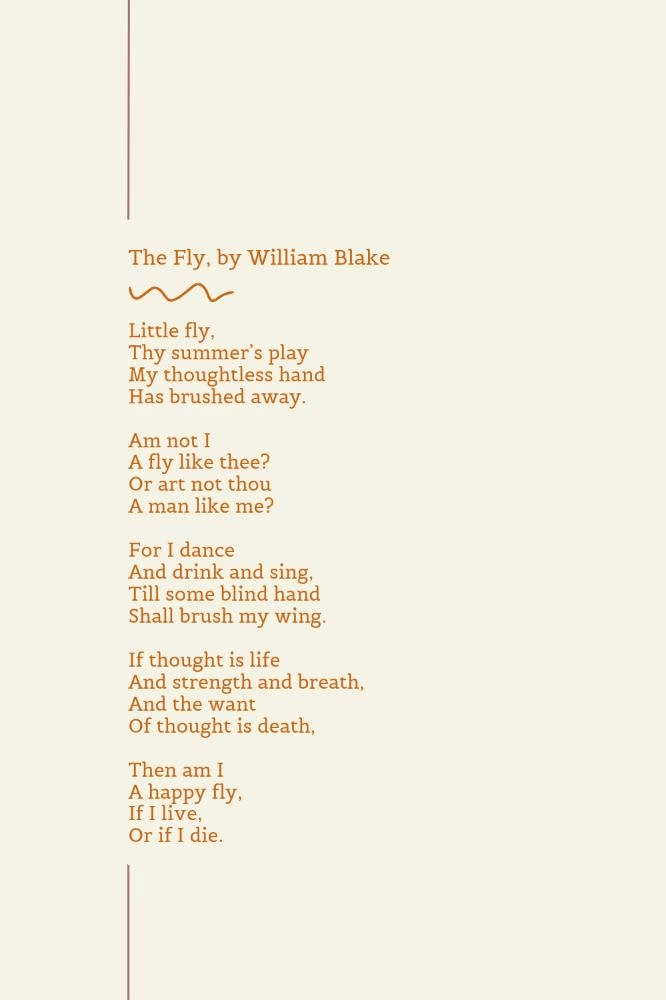
Day 2 Shall I Compare Thee to a Summer’s Day, by William Shakespeare
Shall I compare thee to a summer’s day?
Thou art more lovely and more temperate.
Rough winds do shake the darling buds of May,
And summer’s lease hath all too short a date.
Sometime too hot the eye of heaven shines,
And often is his gold complexion dimmed;
And every fair from fair sometime declines,
By chance, or nature’s changing course, untrimmed;
But thy eternal summer shall not fade,
Nor lose possession of that fair thou ow’st,
Nor shall death brag thou wand’rest in his shade,
When in eternal lines to Time thou grow’st.
So long as men can breathe, or eyes can see,So long lives this, and this gives life to thee.
Shakespeare has immortalised both his beloved and summer in his famous sonnet. Though the season might be temporary, in that it is replaced too soon, in one way summer is eternal. There will always be summer, just different. His sonnet captures the fleeting yet ever present nature of love. Love that is always there, though in different forms and forever evolving.
Day 3 Warm Summer Sun, by Mark Twain
Warm summer sun,
Shine kindly here,
Warm southern wind,
Blow softly here.
Green sod above,
Lie light, lie light.
Good night, dear heart,
Good night, good night.
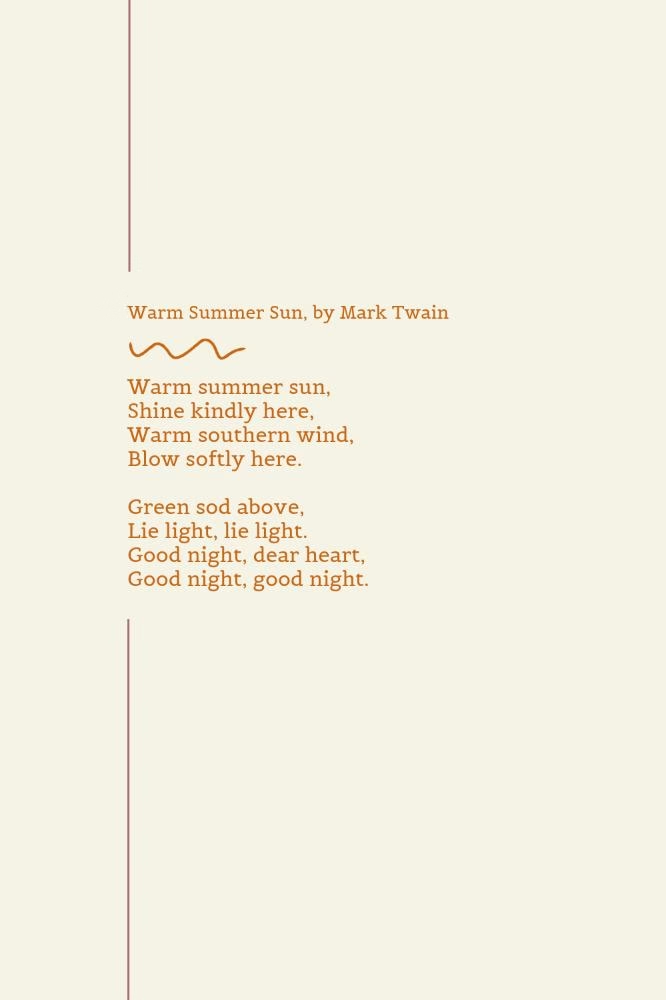
Day 4 Summer Solstice, by Rose Styron
…The shades are down, so
sunlight’s held at bay
though not the fabulous winged
song of summer birds
waking me as ever, always in our
favorite room, our season.
Read the complete text of Summer Solstice here.
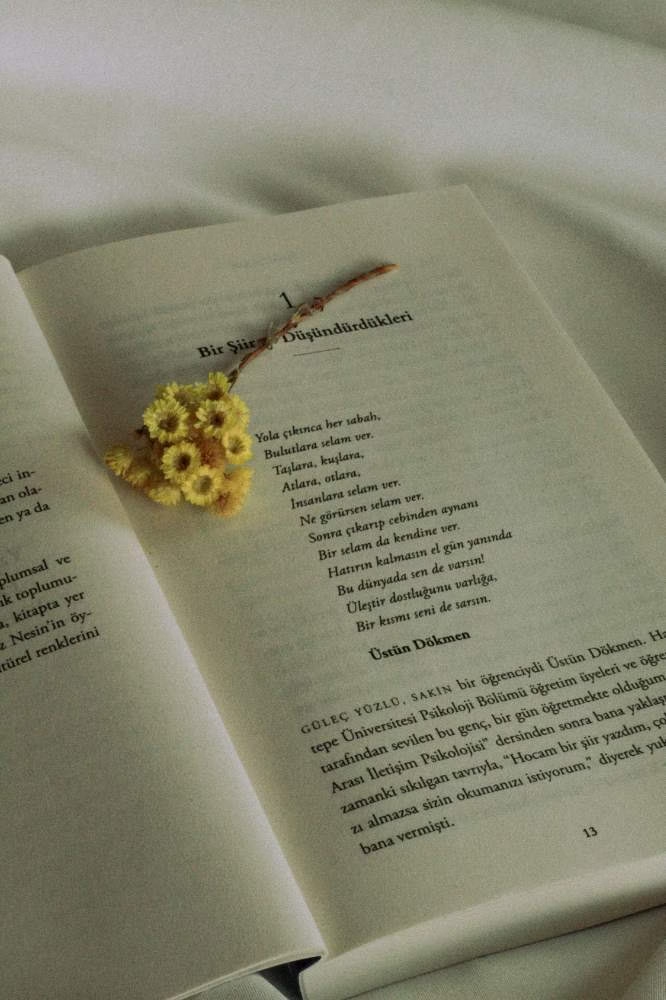
Day 5 In Summer Time, by Paul Lawrence Dunbar
When summer time has come, and all
The world is in the magic thrall
Of perfumed airs that lull each sense
To fits of drowsy indolence;
When skies are deepest blue above,
And flow’rs aflush,—then most I love
To start, while early dews are damp,
And wend my way in woodland tramp
Where forests rustle, tree on tree,
And sing their silent songs to me;
Where pathways meet and pathways part,—
To walk with Nature heart by heart,
Till wearied out at last I lie
Where some sweet stream steals singing by
A mossy bank; where violets vie
In color with the summer sky,—
Or take my rod and line and hook,
And wander to some darkling brook,
Where all day long the willows dream,
And idly droop to kiss the stream,
And there to loll from morn till night—
Unheeding nibble, run, or bite—
Just for the joy of being there
And drinking in the summer air,
The summer sounds, and summer sights,
That set a restless mind to rights
When grief and pain and raging doubt
Of men and creeds have worn it out;
The birds’ song and the water’s drone,
The humming bee’s low monotone,
The murmur of the passing breeze,
And all the sounds akin to these,
That make a man in summer time
Feel only fit for rest and rhyme.
Joy springs all radiant in my breast;
Though pauper poor, than king more blest,
The tide beats in my soul so strong
That happiness breaks forth in song,
And rings aloud the welkin blue
With all the songs I ever knew.
O time of rapture! time of song!
How swiftly glide thy days along
Adown the current of the years,
Above the rocks of grief and tears!
‘Tis wealth enough of joy for me
In summer time to simply be.
These summer sounds and summer sights—there is such childlike joy in how Dunbar speaks of the summer. It makes you feel as if all the problems have been chased away by the summer sun and all that has remained pure, untainted bliss.
Day 6 Summers Farewell, by Eliza Cook
What sound is that? ‘Tis Summer’s farewell,
In the breath of the night-wind sighing;
The chill breeze comes like a sorrowful dirge,
That wails o’er the dead and the dying.
The sapless leaves are eddying round,
On the path which they lately shaded:
The oak of the forest is losing its robe;
The flowers have fallen and faded.
All that I look on but saddens my heart,
To think that the lovely so soon should depart.
Yet why should I sigh? Other summers will come,
Joys like the past one bringing:
Again will the vine bear its blushing fruit;
Again will the birds be singing.
The forest will put forth its “honours” again;
The rose be as sweet in its breathing;
The woodbine will climb round the lattice pane,
As wild and rich in its wreathing.
The hives will have honey, the bees will hum;
Other flowers will spring, other summers will come!
They will, they will; but ah! who can tell
Whether I may live on till their coming?
This spirit may sleep too soundly then
To wake with the warbling or humming.
This cheek, now pale, may be paler far
When the summer sun next is glowing;
The cherishing rays may gild with light
The grass on my grave-turf growing.
Oh what a change in my spirit’s dream
May there be ere the summer sun next shall beam!
Have you ever looked at something and realized that it is temporary and yet unbearably beautiful. There is something about summer that tugs us towards that idea if permanence in change. Or perhaps it is just how nature is, withering petals and blooming buds all at the same time.
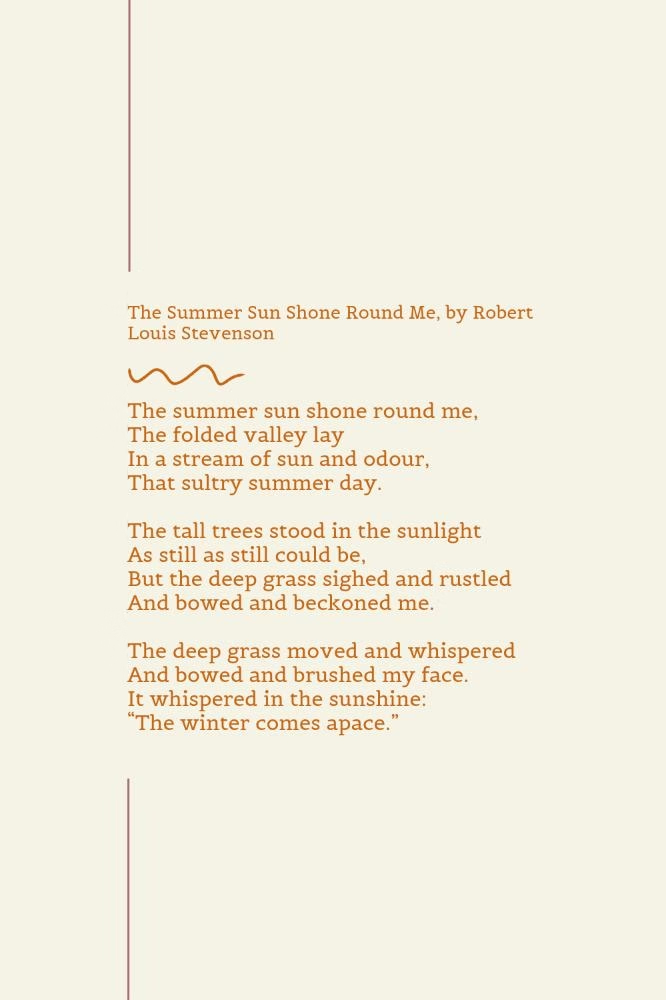
Day 7 The Summer Sun Shone Round Me, by Robert Louis Stevenson
The summer sun shone round me,
The folded valley lay
In a stream of sun and odour,
That sultry summer day.
The tall trees stood in the sunlight
As still as still could be,
But the deep grass sighed and rustled
And bowed and beckoned me.
The deep grass moved and whispered
And bowed and brushed my face.
It whispered in the sunshine:
“The winter comes apace.”
Every summer comes with the fear of its ending too soon. Too soon, we think under the sun, winter will come. Despite the rush of fragrant joy, there comes the ominous whisper of impending cold, and maybe it’s all just a metaphor for happiness and sorrow. After all, winter must come if we are to enjoy summer. But still, let us smile while summer lasts.
Day 8 Lines Written in Early Spring, by William Wordsworth
I heard a thousand blended notes,
While in a grove I sate reclined,
In that sweet mood when pleasant thoughts
Bring sad thoughts to the mind.
To her fair works did Nature link
The human soul that through me ran;
And much it grieved my heart to think
What man has made of man.
Through primrose tufts, in that green bower,
The periwinkle trailed its wreaths;
And ’tis my faith that every flower
Enjoys the air it breathes.
The birds around me hopped and played,
Their thoughts I cannot measure:—
But the least motion which they made
It seemed a thrill of pleasure.
The budding twigs spread out their fan,
To catch the breezy air;
And I must think, do all I can,
That there was pleasure there.
If this belief from heaven be sent,
If such be Nature’s holy plan,
Have I not reason to lament
What man has made of man?
This poems captures so beautifully the tragedy of human suffering when this world has been made perfect. There is no sorrow in the dying of the leaves or in the blossoms that pave the ground each spring. There is no sorrow in nature, but we have created it nonetheless.
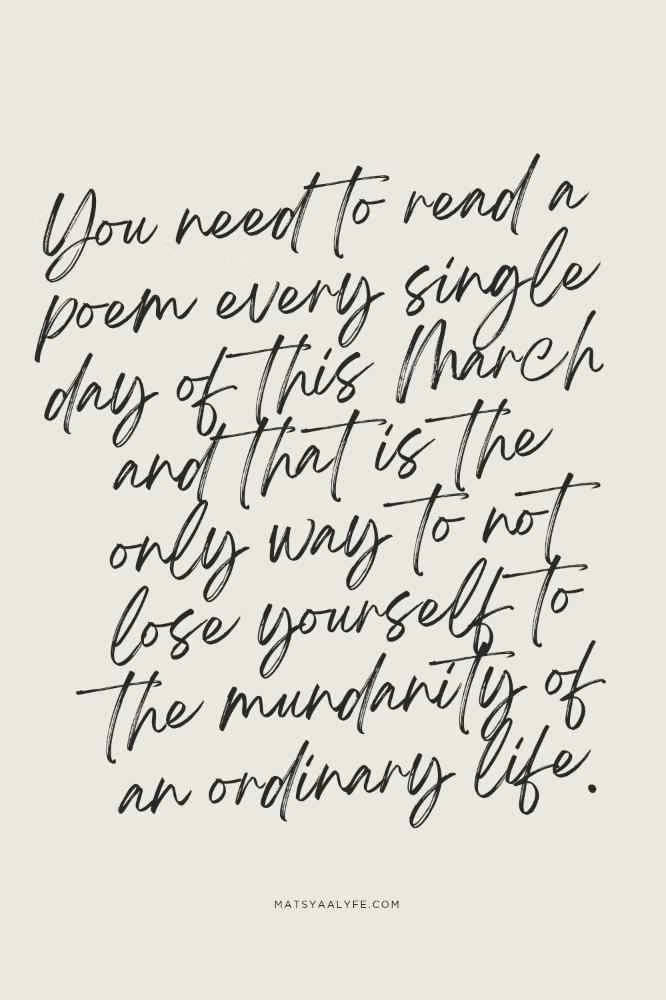
Day 9 March, by William Cullen Bryant
The stormy March is come at last,
With wind, and cloud, and changing skies,
I hear the rushing of the blast,
That through the snowy valley flies.
Ah, passing few are they who speak,
Wild stormy month! in praise of thee;
Yet, though thy winds are loud and bleak,
Thou art a welcome month to me.
For thou, to northern lands, again
The glad and glorious sun dost bring,
And thou hast joined the gentle train
And wear’st the gentle name of Spring.
And, in thy reign of blast and storm,
Smiles many a long, bright, sunny day,
When the changed winds are soft and warm,
And heaven puts on the blue of May.
Then sing aloud the gushing rills
And the full springs, from frost set free,
That, brightly leaping down the hills,
Are just set out to meet the sea.
The year’s departing beauty hides
Of wintry storms the sullen threat;
But in thy sternest frown abides
A look of kindly promise yet.
Thou bring’st the hope of those calm skies,
And that soft time of sunny showers,
When the wide bloom, on earth that lies,
Seems of a brighter world than ours.
Day 10 On A March Day, by Sara Teasdale
Here in the teeth of this triumphant wind
That shakes the naked shadows on the ground,
Making a key-board of the earth to strike
From clattering tree and hedge a separate sound,
Bear witness for me that I loved my life,
All things that hurt me and all things that healed,
And that I swore it this day in March,
Here at the edge of this new-broken field.
You only knew me, tell them I was glad
For every hour since my hour of birth,
And that I ceased to fear, as once I feared,
The last complete reunion with the earth.
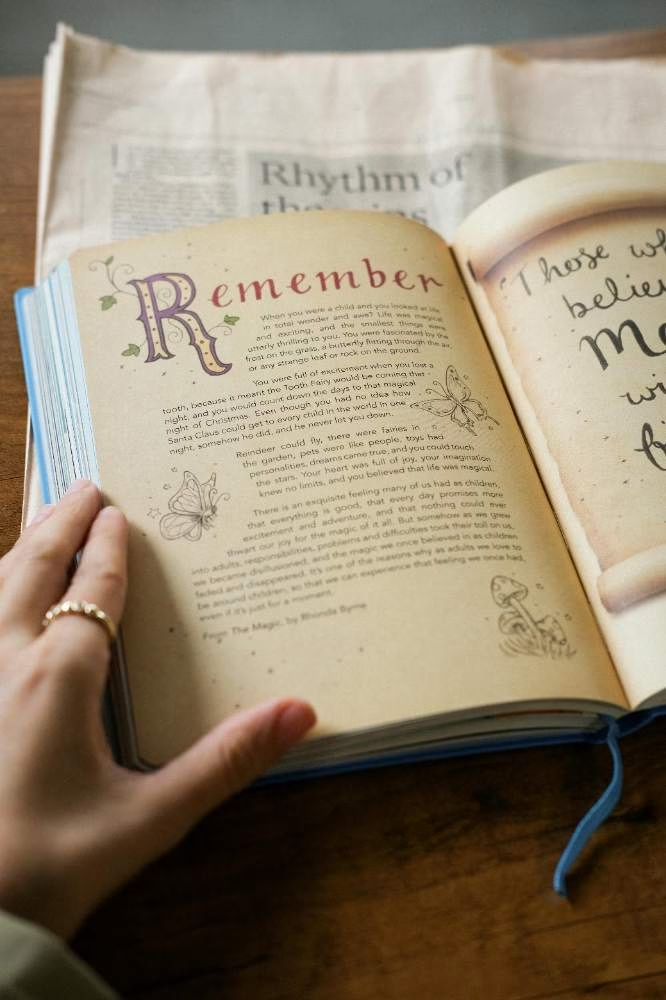
Day 11 The School Boy, by William Blake
I love to rise in a summer morn
When the birds sing on every tree;
The distant huntsman winds his horn,
And the skylark sings with me.
O! what sweet company!
But to go to school on a summer morn,
O! it drives all joy away;
Under a cruel eye outworn,
The little ones spend the day
In sighing and dismay.
Ah! then at times I drooping sit,
And spend many an anxious hour,
Nor in my book can I take delight,
Nor sit in learning’s bower,
Worn thro’ with the dreary shower.
How can the bird that is born for joy
Sit in a cage and sing?
How can a child, when fears annoy,
But droop his tender wing,
And forget his youthful spring?
O! father and mother, if buds are nipped
And blossoms blown away,
And if the tender plants are stripped
Of their joy in the springing day,
By sorrow and care’s dismay,
How shall the summer arise in joy,
Or the summer’s fruits appear?
Or how shall we gather what griefs destroy,
Or bless the mellowing year,
When the blasts of winter appear?
This poem strikes the deep hesitation inside our hearts and reassures us that even though there is an end to all the beauty of the summer, it does not mean that we should not enjoy the present.
Day 12 Spring Pools, by Robert Frost
…
The trees that have it in their pent-up buds
To darken nature and be summer woods—
Let them think twice before they use their powers
To blot out and drink up and sweep away
These flowery waters and these watery flowers
From snow that melted only yesterday.
Read the full text of Spring Pools here.
Day 13 Dear March—Come in—, by Emily Dickinson
Dear March—Come in—
How glad I am—
I hoped for you before—
Put down your Hat—
You must have walked—
How out of Breath you are—
Dear March, how are you, and the Rest—
Did you leave Nature well—
Oh March, Come right upstairs with me—
I have so much to tell—
I got your Letter, and the Birds—
The Maples never knew that you were coming—
I declare – how Red their Faces grew—
But March, forgive me—
And all those Hills you left for me to Hue—
There was no Purple suitable—
You took it all with you—
Who knocks? That April—
Lock the Door—
I will not be pursued—
He stayed away a Year to call
When I am occupied—
But trifles look so trivial
As soon as you have come
That blame is just as dear as Praise
And Praise as mere as Blame—
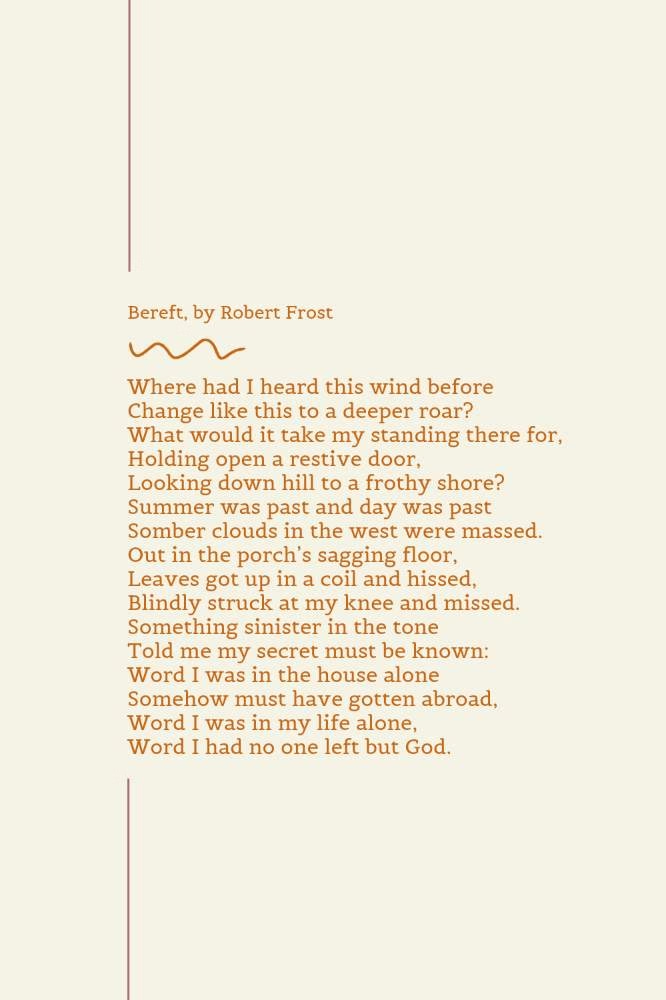
Day 14 Bereft, by Robert Frost
…
Summer was past and day was past
Somber clouds in the west were massed.
Out in the porch’s sagging floor,
Leaves got up in a coil and hissed,
Blindly struck at my knee and missed.
…
Read the full text of Bereft here.
Day 15 In Summer, by Paul Laurence Dunbar
Oh, summer has clothed the earth
In a cloak from the loom of the sun!
And a mantle, too, of the skies’ soft blue,
And a belt where the rivers run.
And now for the kiss of the wind,
And the touch of the air’s soft hands,
With the rest from strife and the heat of life,
With the freedom of lakes and lands.
I envy the farmer’s boy
Who sings as he follows the plow;
While the shining green of the young blades lean
To the breezes that cool his brow.
He sings to the dewy morn,
No thought of another’s ear;
But the song he sings is a chant for kings
And the whole wide world to hear.
He sings of the joys of life,
Of the pleasures of work and rest,
From an o’erfull heart, without aim or art;
‘T is a song of the merriest.
O ye who toil in the town,
And ye who moil in the mart,
Hear the artless song, and your faith made strong
Shall renew your joy of heart.
Oh, poor were the worth of the world
If never a song were heard,—
If the sting of grief had no relief,
And never a heart were stirred.
So, long as the streams run down,
And as long as the robins trill,
Let us taunt old
Care with a merry air,
And sing in the face of ill.
Day 16 A Dream, by Alice Cary
I dreamed I had a plot of ground,
Once when I chanced asleep to drop,
And that a green hedge fenced it round,
Cloudy with roses at the top.I saw a hundred mornings rise, —
So far a little dream may reach, —
And Spring with Summer in her eyes
Making the chiefest charm of each.A thousand vines were climbing o’er
The hedge, I thought, but as I tried
To pull them down, for evermore
The flowers dropt off the other side!Waking, I said, “These things are signs
Sent to insruct us that ’tis ours
Duly to keep and dress our vines, —
Waiting in patience for the flowers.“And when the angel feared of all
Across my hearth its shadow spread,
The rose that climbed my garden wall
Has bloomed the other side,” I said.
Day 17 In Summer Twilight, by Joshua Henry Jones
Just a dash of lambent carmine
Shading into sky of gold;
Just a twitter of a song-bird
Ere the wings its head enfold;
Just a rustling sigh of parting
From the moon-kissed hill to breeze;
And a cheerful gentle, nodding
Adieu waving from the trees;
Just a friendly sunbeam’s flutter
Wishing all a night’s repose,
Ere the stars swing back the curtain
Bringing twilight’s dewy close.
Day 18 Summer Begins to Have the Look, by Emily Dickinson
Summer begins to have the look
Peruser of enchanting Book
Reluctantly but sure perceives
A gain upon the backward leaves—Autumn begins to be inferred
By millinery of the cloud
Or deeper color in the shawl
That wraps the everlasting hill.The eye begins its avarice
A meditation chastens speech
Some Dyer of a distant tree
Resumes his gaudy industry.Conclusion is the course of All
At most to be perennial
And then elude stability
Recalls to immortality.
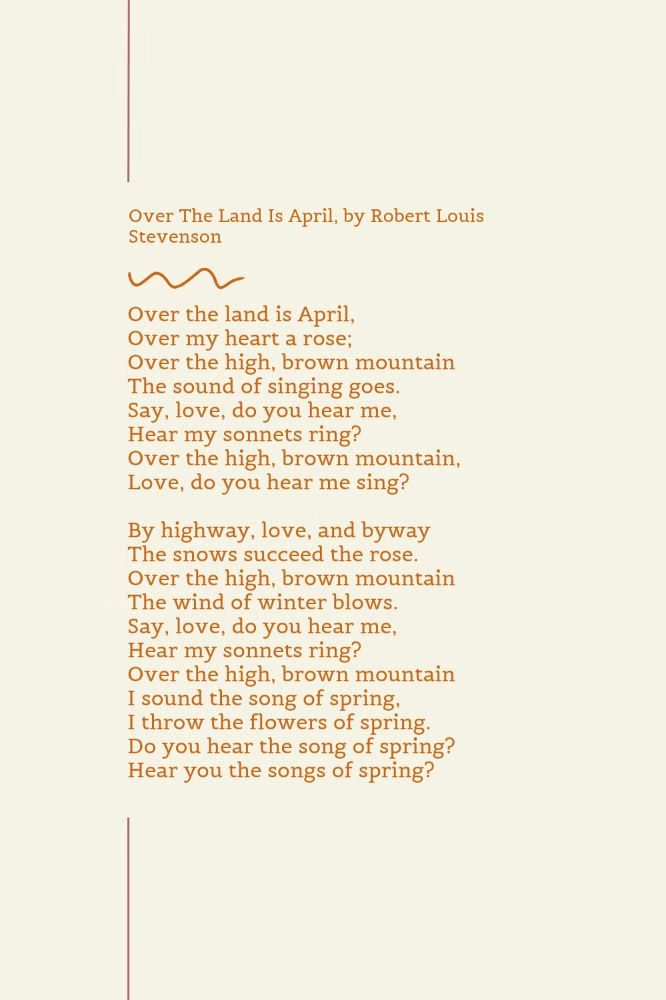
Day 19 Over The Land Is April, by Robert Louis Stevenson
Over the land is April,
Over my heart a rose;
Over the high, brown mountain
The sound of singing goes.
Say, love, do you hear me,
Hear my sonnets ring?
Over the high, brown mountain,
Love, do you hear me sing?By highway, love, and byway
The snows succeed the rose.
Over the high, brown mountain
The wind of winter blows.
Say, love, do you hear me,
Hear my sonnets ring?
Over the high, brown mountain
I sound the song of spring,
I throw the flowers of spring.
Do you hear the song of spring?
Hear you the songs of spring?
Spring is coming and this poem heralds the message. This is a beautiful poem capturing the time just when the snow is melting and one can see the spring arriving from over those far-off, high mountains. The white is melting and making way for the brown and green of the fields, the grayness of the sky is overcome by the bright blue. Have you heard the song of spring yet?
Day 20 Under the Harvest Moon, by Carl Sandburg
Under the harvest moon,
When the soft silver
Drips shimmering
Over the garden nights,
Death, the gray mocker,
Comes and whispers to you
As a beautiful friend
Who remembers.
Under the summer roses
When the flagrant crimson
Lurks in the dusk
Of the wild red leaves,
Love, with little hands,
Comes and touches you
With a thousand memories,
And asks you
Beautiful, unanswerable questions.
This poem by Carl Sandburg delves into the harvest time; the name and the first stanza suggests nighttime but then we’re talking about summer roses and love entering your life, bringing up a thousand beautiful memories and questions you can’t fathom but can’t help asking either.
Day 21 In the Heat of a Rose, by George Marion McClellan
I will hide my soul and its mighty love
In the bosom of this rose,
And its dispensing breath will take
My love wherever it goes.And perhaps she’ll pluck this very rose,
And, quick as blushes start,
Will breathe my hidden secret in
Her unsuspecting heart.And there I will live in her embrace
And the realm of sweetness there,
Enamored with an ecstasy,
Of bliss beyond compare.
By connecting summertime to the beauty and freshness of a rose, McClellan in this poem offers a romantic, symbolic meditation of love and longing—the narrator imagining they’d hide their soul inside a rose and since everyone loves roses, they’d be loved too. It’s connection to summer is subtle, but symbolic. One can imagine this union between the lovers happening during summer, the heat and the yearning flowing over the edges. Summer, the season of romantic intensity, sweet and ecstatic is what gives the narrator the courage to take the step closer to their beloved.
Day 22 After the Winter, by Claude McKay
Some day, when trees have shed their leaves
And against the morning’s white
The shivering birds beneath the eaves
Have sheltered for the night,
We’ll turn our faces southward, love,
Toward the summer isle
Where bamboos spire to shafted grove
And wide-mouthed orchids smile.And we will seek the quiet hill
Where towers the cotton tree,
And leaps the laughing crystal rill,
And works the droning bee.
And we will build a cottage there
Beside an open glade,
With black-ribbed blue-bells blowing near,
And ferns that never fade.
Through beautiful nature imagery the poet announces the coming of summer after bitter, harsh winter. They’re not talking about summer as a whole, about the world experiencing it; what only matters if how they experience this summer, and that is through the happy dream of someday building a cottage at the top of a quiet, peaceful hill where no one would disturb them. A perfect example of someone wanting to find tranquility and happiness at the end of winter.
Day 23 When the Hounds of Spring Are on Winter’s Traces, by Algernon Charles Swinburne
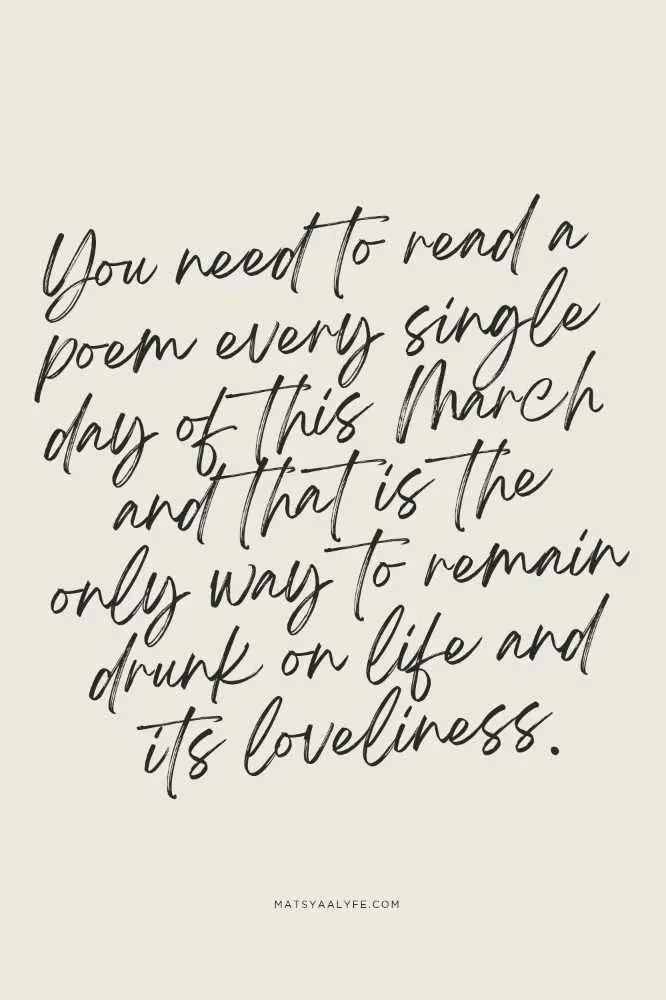
When the hounds of spring are on winter’s traces,
The mother of months in meadow or plain
Fills the shadows and windy places
With lisp of leaves and ripple of rain;
And the brown bright nightingale amorous
Is half assuaged for Itylus,
For the Thracian ships and the foreign faces,
The tongueless vigil, and all the pain.Come with bows bent and with emptying of quivers,
Maiden most perfect, lady of light,
With a noise of winds and many rivers,
With a clamor of waters, and with might;
Bind on thy sandals, O thou most fleet,
Over the splendor and speed of thy feet;
For the faint east quickens, the wan west shivers,
Round the feet of the day and the feet of the night.Where shall we find her, how shall we sing to her,
Fold our hands round her knees, and cling?
O that man’s heart were as fire and could spring to her,
Fire, or the strength of the streams that spring!
For the stars and the winds are unto her
As raiment, as songs of the harp-player;
For the risen stars and the fallen cling to her,
And the southwest wind and the west wind sing.For winter’s rains and ruins are over,
And all the season of snows and sins;
The days dividing lover and lover,
The light that loses, the night that wins;
And time remembered is grief forgotten,
And frosts are slain and flowers begotten,
And in green underwood and cover
Blossom by blossom the spring begins.The full streams feed on flower of rushes,
Ripe grasses trammel a traveling foot,
The faint fresh flame of the young year flushes
From leaf to flower and flower to fruit;
And fruit and leaf are as gold and fire,
And the oat is heard above the lyre,
And the hoofed heel of a satyr crushes
The chestnut-husk at the chestnut-root.And Pan by noon and Bacchus by night,
Fleeter of foot than the fleet-foot kid,
Follows with dancing and fills with delight
The Maenad and the Bassarid;
And soft as lips that laugh and hide
The laughing leaves of the trees divide,
And screen from seeing and leave in sight
The god pursuing, the maiden hid.The ivy falls with the Bacchanal’s hair
Over her eyebrows hiding her eyes;
The wild vine slipping down leaves bare
Her bright breast shortening into sighs;
The wild vine slips with the weight of its leaves,
But the berried ivy catches and cleaves
To the limbs that glitter, the feet that scare
The wolf that follows, the fawn that flies.
Day 25 Midsummer, Tobago by Derek Walcott
… Days I have held,
days I have lost,days that outgrow, like daughters,
my harbouring arms.
Read the full text of Midsummer, Tobago here. This beautiful visualization of summer days made me sob when March ended.
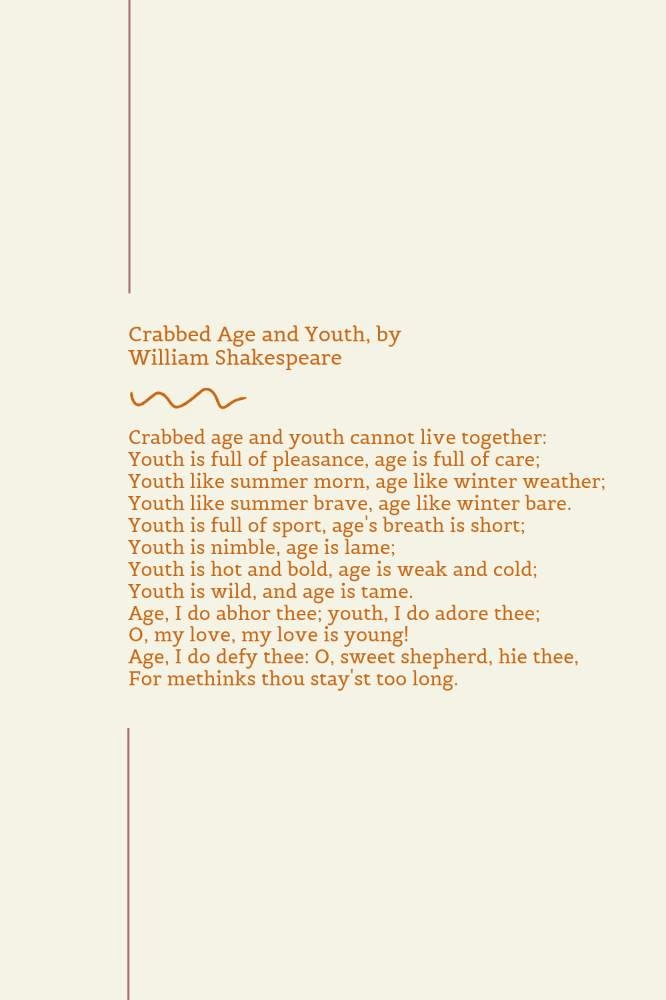
Day 26 Crabbed Age and Youth, by William Shakespeare
Crabbed age and youth cannot live together:
Youth is full of pleasance, age is full of care;
Youth like summer morn, age like winter weather;
Youth like summer brave, age like winter bare.
Youth is full of sport, age’s breath is short;
Youth is nimble, age is lame;
Youth is hot and bold, age is weak and cold;
Youth is wild, and age is tame.
Age, I do abhor thee; youth, I do adore thee;
O, my love, my love is young!
Age, I do defy thee: O, sweet shepherd, hie thee,
For methinks thou stay’st too long.
Day 27 How Sweet I Roam’d, by William Blake
How sweet I roam’d from field to field,
And tasted all the summer’s pride,
‘Till I the prince of love beheld,
Who in the sunny beams did glide!
He shew’d me lilies for my hair,
And blushing roses for my brow;
He led me through his gardens fair,
Where all his golden pleasures grow.
With sweet May dews my wings were wet,
And Phoebus fir’d my vocal rage;
He caught me in his silken net,
And shut me in his golden cage.
He loves to sit and hear me sing,
Then, laughing, sports and plays with me;
Then stretches out my golden wing,
And mocks my loss of liberty.

Day 28 Let It Be Forgotten, by Sara Teasdale
Let it be forgotten, as a flower is forgotten,
Forgotten as a fire that once was singing gold,
Let it be forgotten for ever and ever,
Time is a kind friend, he will make us old.
If anyone asks, say it was forgotten
Long and long ago,
As a flower, as a fire, as a hushed footfall
In a long forgotten snow.
Day 29 In Spring and Summer Winds May Blow, Walter Savage Landor
In spring and summer winds may blow,
And rains fall after, hard and fast;
The tender leaves, if beaten low,
Shine but the more for shower and blastBut when their fated hour arrives,
When reapers long have left the field,
When maidens rifle turn’d-up hives,
And their last juice fresh apples yield,A leaf perhaps may still remain
Upon some solitary tree,
Spite of the wind and of the rain . . .
A thing you heed not if you see.At last it falls. Who cares? Not one:
And yet no power on earth can ever
Replace the fallen leaf upon
Its spray, so easy to dissever.If such be love, I dare not say.
Friendship is such, too well I know:
I have enjoyed my summer day;
‘Tis past; my leaf now lies below.
Day 30 The Roses, by Mary Oliver
… there is no end,
believe me! to the inventions of summer,
to the happiness your body
is willing to bear.
Read the full text of The Roses here.
Day 31 Nothing Twice, by Wisława Szymborska
Nothing can ever happen twice.
In consequence, the sorry fact is
that we arrive here improvised
and leave without the chance to practice.Even if there is no one dumber,
if you’re the planet’s biggest dunce,
you can’t repeat the class in summer:
this course is only offered once.…
Read the full text of Nothing Twice here. The thought is crucial to understand: nothing in life happens twice. Summer will be here again, but not this one. This summer is the only one like itself. Live it.
The challenge is that you’ve got to read one poem a day. Can you keep it up? Can you imagine yet the kind of amazing, interesting, beautiful person this is going to make you?
Have fun reading.
If it’s summer now and you’re up to some productive, fun, nerdy activities that’ll keep your busy, check out this post: 51 Fun, Productive Things to Do This Summer of 2025. Want to see more poems? Read these beautiful poems about girlhood, the quiet ache and nostalgia of growing up.



